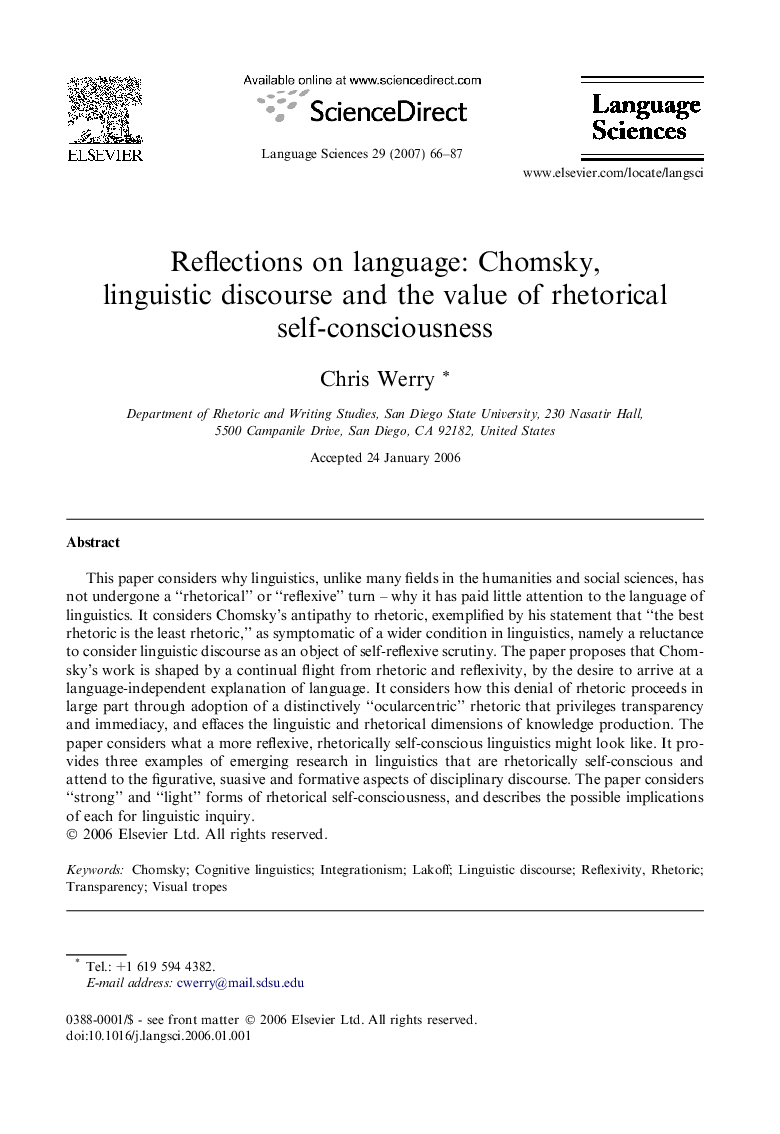| Article ID | Journal | Published Year | Pages | File Type |
|---|---|---|---|---|
| 1103697 | Language Sciences | 2007 | 22 Pages |
This paper considers why linguistics, unlike many fields in the humanities and social sciences, has not undergone a “rhetorical” or “reflexive” turn – why it has paid little attention to the language of linguistics. It considers Chomsky’s antipathy to rhetoric, exemplified by his statement that “the best rhetoric is the least rhetoric,” as symptomatic of a wider condition in linguistics, namely a reluctance to consider linguistic discourse as an object of self-reflexive scrutiny. The paper proposes that Chomsky’s work is shaped by a continual flight from rhetoric and reflexivity, by the desire to arrive at a language-independent explanation of language. It considers how this denial of rhetoric proceeds in large part through adoption of a distinctively “ocularcentric” rhetoric that privileges transparency and immediacy, and effaces the linguistic and rhetorical dimensions of knowledge production. The paper considers what a more reflexive, rhetorically self-conscious linguistics might look like. It provides three examples of emerging research in linguistics that are rhetorically self-conscious and attend to the figurative, suasive and formative aspects of disciplinary discourse. The paper considers “strong” and “light” forms of rhetorical self-consciousness, and describes the possible implications of each for linguistic inquiry.
